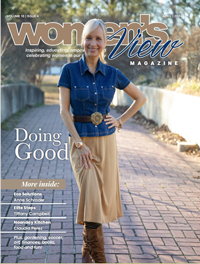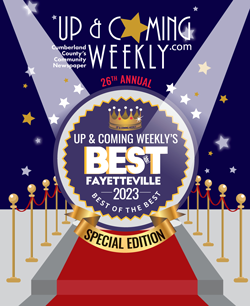Fayetteville streets are becoming deadly raceways
- Details
- Tuesday, 16 April 2024
- Written by Craig Stewart

 Publisher’s Note:
Publisher’s Note:
I’m yielding my editorial space to publish a Letter to the Editor we received from a Fayetteville resident who addresses a major (and common) local safety concern that weighs heavily on the hearts and minds of thousands of Fayetteville residents. I applaud this writer for his bold initiative in attempting to bring his concerns to our city leaders.
It is my hope, that this letter will inspire and motivate others to get involved by voicing their opinions and sharing their experiences with elected officials. This is the ultimate way to effect change. Thank you for reading the Up & Coming Weekly community newspaper.
— Bill Bowman
I went to the April 3rd meeting of Fayetteville City’s Council Community Safety Committee to voice my complaints over speeders with their ear-piercing, unmuffled cars and motorcycles. I never knew we had such a committee until I was directed there by the 911 operator.
I came prepared with a speech and expected to see many more like-minded concerned citizens present, but I was the only non-committee member there. Maybe not too many people know about this resource. Interesting.
I was cordially greeted and asked the nature of my presence. I told them my intentions and gave the Chairman of the Committee, Council Member Mario Benavente, a copy of my presentation since I would not be allowed to present it. He said the first step for concerns like mine begins with my District Five representative, Lynne Greene.
He took my contact information, and I showed myself out. This is my speech to the committee:
Fayetteville police do not rule the streets. They are overwhelmed by speeders with their ear-piercing, unmuffled cars and motorcycles. The lack of police cars with radar is only part of the problem. In my opinion, the will to enforce the law is also lacking. (At this point, I was going to relate my personal experience.)
My wife and I were waiting to turn left from S. McPherson Church Road onto Raeford Road when a speeder ran through the red light just before I was about to turn.
I looked up and saw a police car sitting at the BP station facing the intersection. Both my wife and I said at the same time, "Look at that!". I made the turn, and my wife said, "You go over there to that policeman and ask him why he did not go after that car!"
I resisted, but she was insistent. So, I did.
I came up to his window, and he was very nice. He answered me, "I don't have radar."
He also said he was one of only two officers available for the entire area. This incident caused me to question the city's resolve to provide an adequate police force with proper equipment—end of story. My presentation continues.
South McPherson Church Road and the All-American Freeway serve these lawbreakers as their personal Indianapolis 500. Also, misfits draw doughnuts in intersections and parking lots, showing contempt for authorities and private property owners.
You should take it personally and direct more funds to the police force. Without safety and respect for the law, you cannot pursue other projects to improve the city—end of presentation.
The constant blaring of speeding, unmuffled cars, and motorcycles just got too much for me recently, which is why I called 911. This led me to the Community Safety Committee on where I received their meeting agenda and the minutes of their last meeting on March 6, 2024.
I then focused on one agenda item and two organizations I was not familiar with:
1. Driving Equality Laws Presentation Recap (agenda item)
2. Emancipate NC (organization)
3. Forward Justice (organization)
Upon reviewing the minutes, I noticed both Emancipate NC and Forward Justice made presentations to the committee, and received general approval with City Council Member Banks-McLaughlin saying there was "great dialogue between Fayetteville Police Chief Braden and Attorney Carpenter" of Forward Justice.
What is Emancipate NC, and who is Forward Justice? Emancipate NC has a website that states, "It is an organization founded on the knowledge that incarceration and structural racism is harmful.
It is an organization dedicated to shifting the narrative on racialized mass incarceration through community mobilization.” They maintain that the mainstream narrative that criminalizes Black and Brown people must be transformed.
The Forward Justice organization is a nonprofit center in Durham, NC, dedicated to advancing racial, social, and economic justice in the South. This group challenges laws, policies, and practices that harm the most vulnerable in society- the Black, Brown, and poor populations, keeping them from full liberation.
You should Google these groups for yourself. They are anti-capitalist (Marxist), anti-police, and anti-law and order. They promote the ideas of systemic governmental racism and racial injustice.
So, why do these organizations have the ear and endorsement of our city council without public knowledge?
Does not the law read the same no matter what race you are? Is there a need for any organization to cheer on one race over another? Justice must be blind no matter what your situation is.
I went to the April 3rd meeting to complain and voice my concerns about noisy, speeding, and contemptible behavior on the roadways. I came away more troubled over what appears to be a bigger problem.
Craig Stewart
Fayetteville, NC 28314

 How to resolve AdBlock issue?
How to resolve AdBlock issue? 












